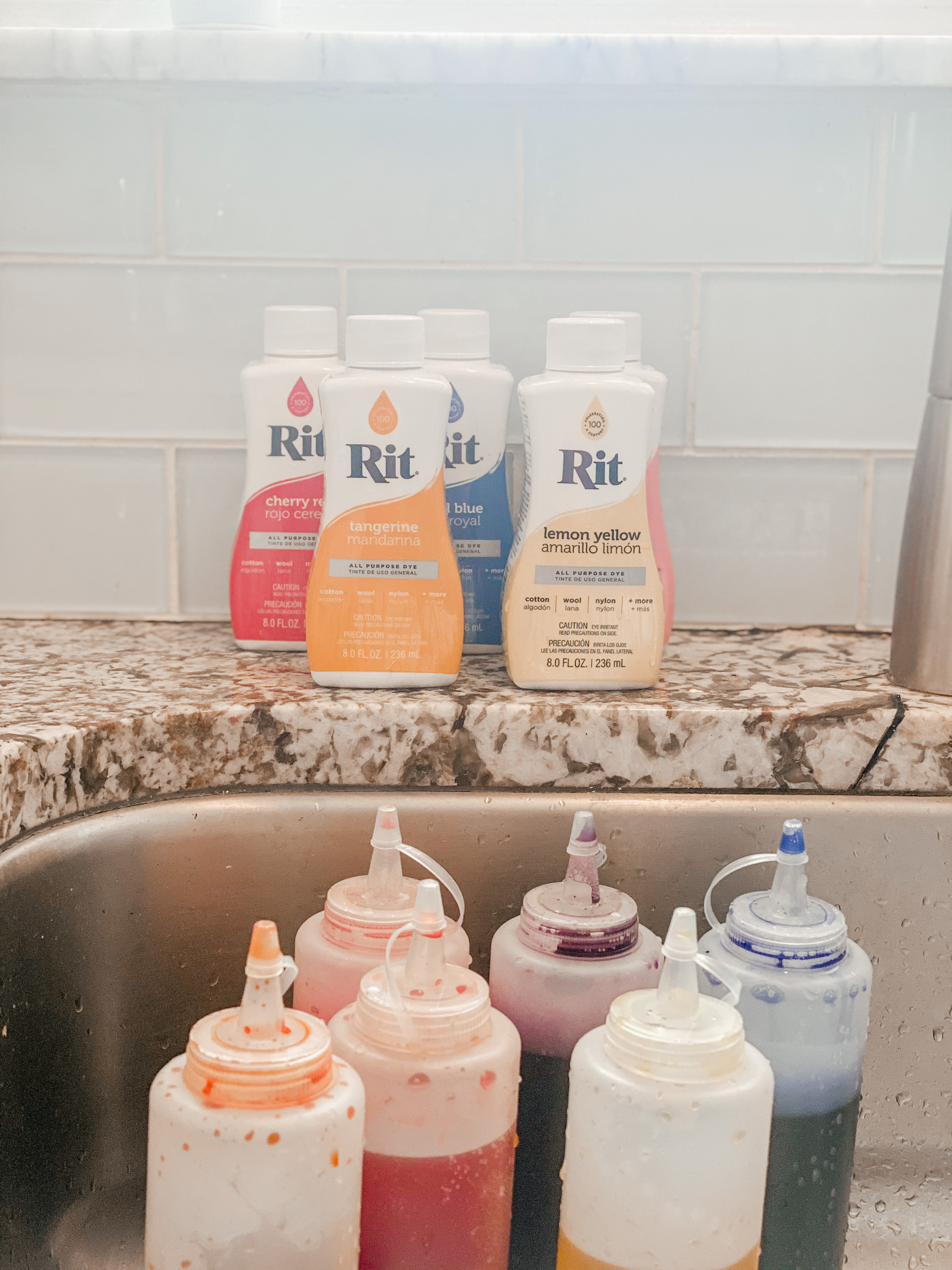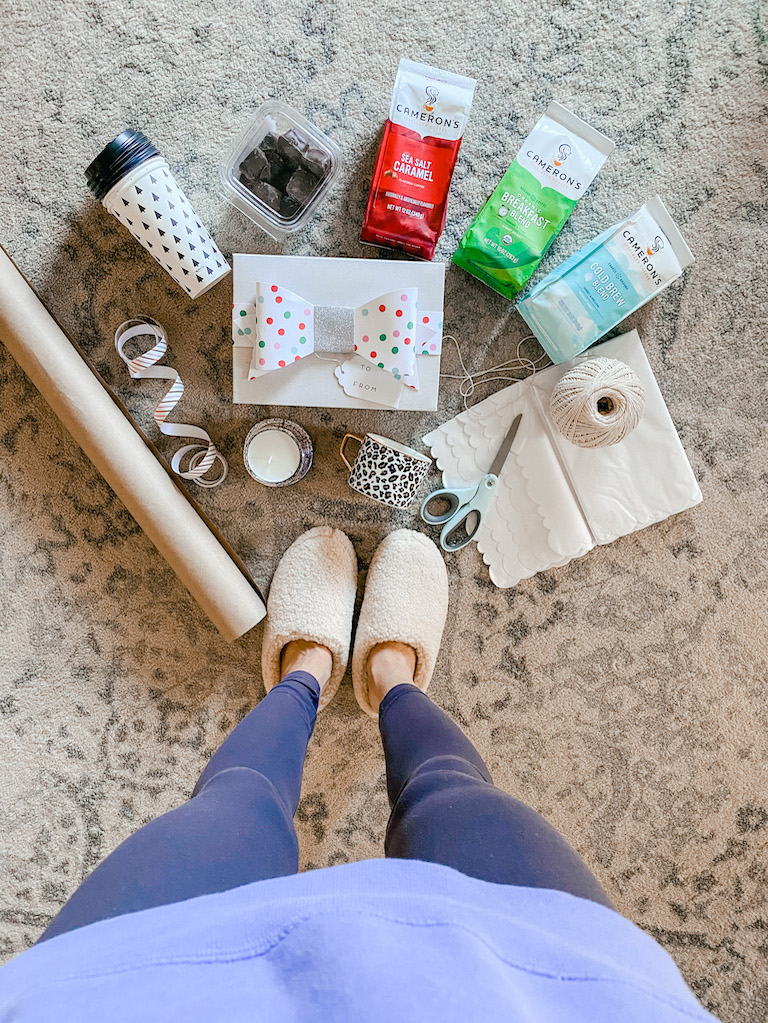We finally tackled our latest DIY project, peel and stick wallpaper! The recent stay at home orders have had us checking more projects off our list. We aren’t strangers to applying wallpaper (or removing it) that is for sure haha! A couple of years ago we wallpapered a wall in our powder room which you can see here. The peel and stick wallpaper we used in my office was pretty easy to apply. I would say on a scale of 1 to 10 (1 being the easiest, 10 being the most difficult) this was around a 4.5. Read on to learn more, and be sure to drop your questions in the comments if you have any!

What pattern should I choose for my peel and stick wallpaper?
This was probably the most difficult part for me because making a design or home decor decision is always tough for me. I second guess myself CONSTANTLY! I knew I wanted to wallpaper this part of my home office, but struggled on deciding on a design. The pattern I picked is actually what my gut choice was to begin with, but I kept looking anyways. My advice for covering a larger space (this project was 72 sq ft) is to choose a pattern that repeats often because it will be more forgiving. If you are doing a smaller space, I think you can get away with larger more abstract patterns. Check out some of these fun peel and stick wallpaper patterns below!

How many rolls do I need?
The number of rolls you need really depends on the square footage you are covering. Be sure to measure your space before ordering to avoid not having enough and then not being able to get more! EEK! In this case, we covered two separate walls totaling about 75 square feet and we used approximately 3.5 rolls of wallpaper.

Is there a difference between peel and stick wallpaper and removable wallpaper?
We have experience using peel and stick, as well as glue-based wallpaper but I must say the peel and stick is easier! The removable kind we used here, we had to spray with water to activate the adhesive and it was just another step and little less forgiving.
What supplies do I need?
- Safe cutting surface
- Measuring tape
- Ruler or straight edge
- Craft knife
- Scissors
- Step stool
- Pencil
How do I prep my space for wallpaper?
Make sure you remove all wall coverings such as light switches or outlet covers and that your surface area is clean and smooth!
The process
Roll out the wallpaper (we started with 2) and find where the patterns repeat/line up by placing each panel next to each other. This pattern was kind of busy, so make sure you number your panels on the back to avoid confusion when it’s time to start hanging.

We (ahem, Steve) marked on the wall with pencil where the sheet should line up and to use as a guide. Highly recommend doing this.

Grab your first sheet and begin to pull back the liner and align with the wall and ceiling. Slowly start to peel the rest of the back off while the other person works to gently press to the wall and get rid of any air bubbles. This particular wallpaper was easy to reposition and remove from each other if it became stuck together or not lined up exactly right on the wall.

We had a few strange angles and cuts to make which was a little scary at times, but we worked through them and all turned out well!
Grab the second panel and line it up where the patterns match up, then repeat the steps above!
Be sure to cut around outlet covers too!
What is the level of difficulty when using peel and stick wallpaper?
As I mentioned above, I would say the level of difficulty for this isn’t too bad. On a scale of 1 to 10 (10 being the most difficult), I would say this particular wallpaper was about a 4.5. I think it could’ve been even easier if the walls we had been covering were exact cuts. We had a couple awkward cuts and corners that made it a tad more difficult for us.
Got questions? Drop them in the comments below, and I’ll get back to you soon!

Want more posts like this? Sign up for my weekly email newsletter and receive these posts and more right to your inbox!
This post may contain affiliate links, which means I receive a commission if you choose to purchase through links I provide (at no extra cost to you). As an Amazon Associate I earn from qualifying purchases.









